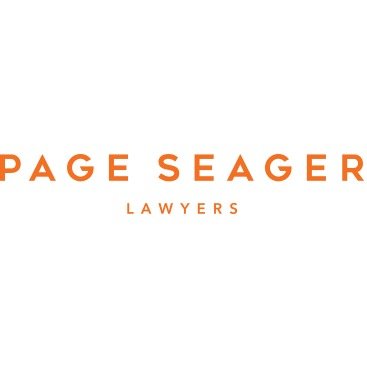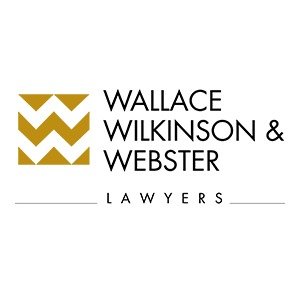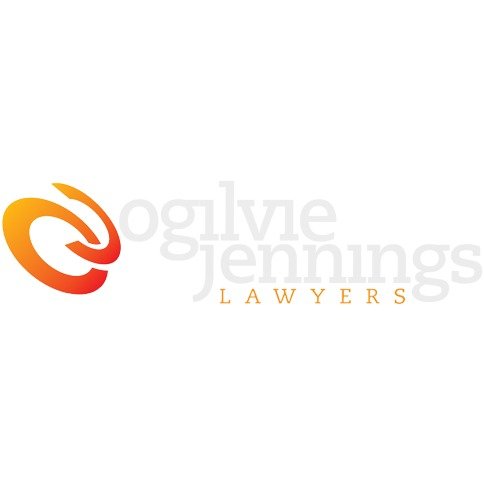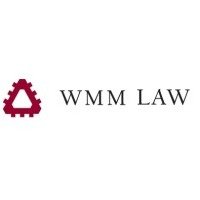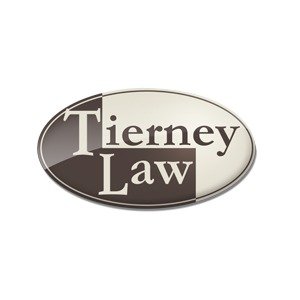Best Sanctions & Export Controls Lawyers in Hobart
Share your needs with us, get contacted by law firms.
Free. Takes 2 min.
List of the best lawyers in Hobart, Australia
About Sanctions & Export Controls Law in Hobart, Australia
Sanctions and export controls are regulatory frameworks designed to manage and restrict certain international trade activities from Australia, including Hobart and the wider state of Tasmania. These regulations are primarily concerned with the movement of goods, technology, and services across national borders, particularly when national security, foreign policy, or international obligations are at stake. In Hobart, as across Australia, these laws are mainly enforced at the federal level, but local businesses and individuals must adhere to them regardless of scale or industry. Breaching sanctions or export control laws can result in severe penalties, making legal compliance essential.
Why You May Need a Lawyer
Legal assistance is often crucial for navigating the complexities of sanctions and export controls. You may need a lawyer if you are:
- Looking to export goods, technology, or services from Hobart to overseas destinations
- Unsure whether your products are subject to export controls or sanctions regulations
- Accused of breaching regulations or facing investigation by authorities
- Negotiating contracts with international clients and need to understand compliance obligations
- Concerned about transactions with individuals or entities in countries subject to Australian sanctions
- Required to apply for permits or exemptions from the government
- Operating in sensitive industries like defense, technology, or dual-use goods
- Acquiring businesses or assets that might be affected by sanctions restrictions
- Updating internal compliance programs or conducting risk assessments
- Responding to requests for information or audits by government agencies
A lawyer’s expertise helps ensure you meet your compliance obligations and avoid legal pitfalls.
Local Laws Overview
While Hobart is governed by Australian federal law on sanctions and export controls, there are unique considerations for Tasmanian businesses:
- The Charter of the United Nations Act 1945 and the Autonomous Sanctions Act 2011 regulate Australia’s sanctions regime. These Acts list sanctioned countries, persons, and entities, and set out prohibited or restricted dealings.
- The Customs Act 1901 and the Defence Trade Controls Act 2012 manage the export of defense and strategic goods, including dual-use items.
- Export controls can apply to physical goods, technology, software, or even technical data transmitted electronically.
- Organizations and individuals in Hobart must check and comply with up-to-date sanctioned entity lists, licensing requirements, and reporting obligations.
- The Commonwealth Department of Foreign Affairs and Trade (DFAT) administers Australia’s sanctions, while the Australian Border Force (ABF) enforces controls at ports, including Hobart’s maritime and air terminals.
- Significant penalties may apply for noncompliance, including civil fines and imprisonment.
All Hobart entities operating internationally should be vigilant and consult experts if they are unsure of their obligations.
Frequently Asked Questions
What are sanctions and export controls?
Sanctions are restrictions on activities with certain countries, individuals, or organizations to meet international security or policy objectives. Export controls regulate the movement of specified goods, technology, and services from Australia to other countries, especially those with security or proliferation risks.
Who administers sanctions and export controls in Australia?
The Department of Foreign Affairs and Trade (DFAT) administers sanctions, while the Australian Border Force (ABF) and the Department of Defence oversee export controls. These regulations apply equally in Hobart and across all of Australia.
Do these laws only apply to large exporters?
No. Sanctions and export controls apply to anyone in Hobart or Tasmania involved in exporting goods, services, or technology, regardless of business size. Even individuals can be subject to these laws.
What types of goods or activities are controlled?
Defence and dual-use items, certain technologies, intellectual property, financial transactions, and services destined for sanctioned countries or entities may be controlled. Controls also cover intangible transfers via email or cloud computing.
How do I know if a good is controlled?
Goods are listed in the Defence and Strategic Goods List (DSGL). A lawyer or compliance consultant can assist in classifying goods or technology and determining if an export license is required.
What are the penalties for violations?
Breaching sanctions or export controls laws may result in hefty fines, loss of export privileges, and imprisonment. Penalties apply to individuals and companies, even if the breach was unintentional.
Can I apply for a permit or license for a controlled export?
Yes. Depending on the goods, destination, and activity, you may apply for a permit through the Department of Defence or seek sanctions permits from DFAT. Legal advice is recommended when submitting applications.
Are there risks when shipping technology or software electronically?
Yes. Controlled technology or software sent via electronic means (email, file sharing, cloud storage) is subject to the same laws as physical goods exports.
What should I do if I receive a notice from authorities?
If approached by DFAT, ABF, or other authorities, seek immediate legal advice. Responding incorrectly or delaying action can worsen your legal situation.
Can local Tasmanian businesses be affected by international sanctions?
Yes. Sanctions imposed by Australia or adopted from the United Nations can impact any Tasmanian business or individual engaging with foreign entities, regardless of industry.
Additional Resources
Several Australian bodies and resources can assist those in Hobart with sanctions and export controls queries:
- Department of Foreign Affairs and Trade (DFAT) - for sanctions guidelines and updates
- Australian Border Force (ABF) - for enforcement and customs issues
- Department of Defence - Export Control Branch (for DSGL and export permits)
- Australian Law Council or Tasmanian Law Society - for legal referrals
- Australian Government’s Business.gov.au - general compliance information
- Trade or industry associations - many provide compliance seminars and support
Always verify information directly with government authorities or through a qualified legal professional.
Next Steps
If you need legal assistance regarding sanctions and export controls in Hobart, consider the following steps:
- Identify your risk areas by reviewing your business or personal activities involving exports or international transactions.
- Gather relevant documents, such as contracts, correspondence, customs declarations, and any notices you have received.
- Schedule a consultation with a lawyer experienced in sanctions and export controls. Local law societies or referrals from professional organizations can help you find the right expert.
- Stay informed by subscribing to updates from DFAT and the Department of Defence to ensure ongoing compliance.
- Implement or update your internal compliance procedures to prevent accidental breaches in the future.
Acting proactively helps protect your interests, avoid costly mistakes, and ensures your compliance with both local and international obligations.
Lawzana helps you find the best lawyers and law firms in Hobart through a curated and pre-screened list of qualified legal professionals. Our platform offers rankings and detailed profiles of attorneys and law firms, allowing you to compare based on practice areas, including Sanctions & Export Controls, experience, and client feedback.
Each profile includes a description of the firm's areas of practice, client reviews, team members and partners, year of establishment, spoken languages, office locations, contact information, social media presence, and any published articles or resources. Most firms on our platform speak English and are experienced in both local and international legal matters.
Get a quote from top-rated law firms in Hobart, Australia — quickly, securely, and without unnecessary hassle.
Disclaimer:
The information provided on this page is for general informational purposes only and does not constitute legal advice. While we strive to ensure the accuracy and relevance of the content, legal information may change over time, and interpretations of the law can vary. You should always consult with a qualified legal professional for advice specific to your situation.
We disclaim all liability for actions taken or not taken based on the content of this page. If you believe any information is incorrect or outdated, please contact us, and we will review and update it where appropriate.






